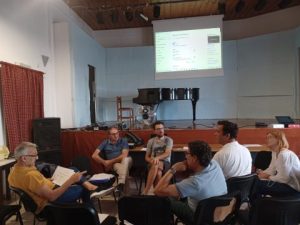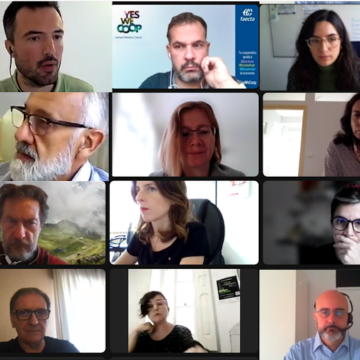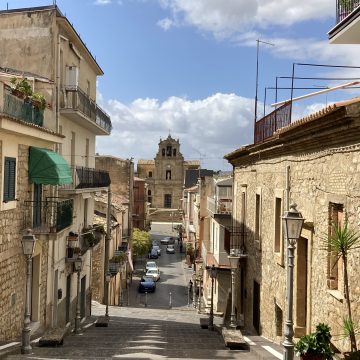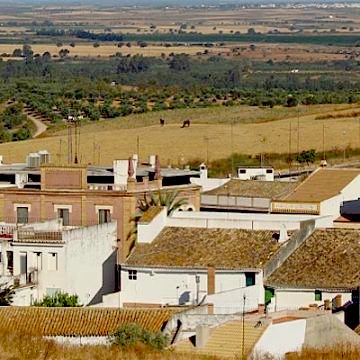During the mission in Sifnos a deeper analysis of the initiatives in partners’ territories

Sifnos, in the Cycladic archipelago, hosted GRAPE second Social Economy Mission. The sharing of good practices in Sifnos and a deeper analysis of partners’ initiatives and projects concerning protection and promotion of local heritage, efficient and sustainable use of resources, healthy and sustainable agro-food system were the goals of this meeting, held from the 20th to the 24th of September. The work for the local Action Plans elaboration further developed.
In the first day, partners were engaged in one-to-one meetings, organised in order to allow every local partnership to catch up individually with the other local partnerships and discuss the chances for the replicability of the various practices proposed. Exchanges among partners with similar priorities were particularly significant. Some very interesting initiatives emerged during these meetings, we describe some of them.
Regeneration, recycling and sustainable mobility
Concerning the priority “protection and promotion of local heritage”, the Community Foundation of Messina and the Municipality of Mirabella Imbaccari shared the process that led to the regeneration and re-functionalisation of the historical building Palazzo Biscari, which is now a sustainable development hub for the territory. Trying to devise solutions for a healthy and sustainable agro-food system, the Municipality of Malegno started the recovery of today abandoned lands once cultivated with vines, in order to protect the soil from hydrogeological instability and promote social economy with the involvement of a farming cooperative which shall cultivate olives and grapes.
The Municipality of Bonares has introduced its long-term plan for sustainable mobility aimed at reducing pollution and consumption of fossil fuels. Concerning the most vulnerable groups, the Municipality devised a one-year plan to foster employment that uses social aspects as evaluation criteria for candidates, thus favouring subjects more in difficulty.
Solar panels, LED technology, stone-walls
Concerning the pillar “efficient and sustainable use of resources”, the Municipalities of Mirabella Imbccari, Bonares and Malegno have showcased their experiences aimed at making the public sector greener and more efficient. Solar panels were installed on buildings owned by the public authority so as to increase energy self-production (Mirabella, Bonares); such buildings were recovered to ensure a higher energy efficiency using sheep wool, otherwise disposed as waste (Malegno); LED technology was used for public lightning for a higher efficiency and a lower consumption (Bonares).
The Municipality of Sifnos shared with the other partners its plan for the protection of dry stone-walls, an activity fulfilling both the priority of protection and promotion of local heritage and the priority of efficient use of natural resources. Furthermore, the problem of overtourism was discussed, highlighting the negative impact of an anthropic pressure that may destroy the island itself if not accompanied by an aware and respectful use of resources.
During the first day of the meeting a workshop was held focusing on the sustainable management of natural resources; such workshop involved the community and several representatives of local civil society organizations.
Local Action Plans
The second day was dedicated to the explanation of the main phases in the drafting of a Local Action Plan: defining a “benchmark” (i.e., what, in theory can be achieved); identifying local inhabitants’ needs (stakeholders); definition of a consolidated benchmark (obtained combining the previous steps); participative planning of the actions to take; drafting a local strategic plan.
Each partner gave a contribution in suggesting different kind of actions that should be locally implemented to make the single passages operational: such suggestions will be formalised during the third Mission in Bonares. The Mission ended with a tour in the Faros village, where the partners visited some of the experiences of natural resources’ management discussed during the first-day workshop.
This document reflects the views only of the Author and the GRAPE Consortium. The Commission cannot be held responsible for any use wich may be made of the information contained therein.








